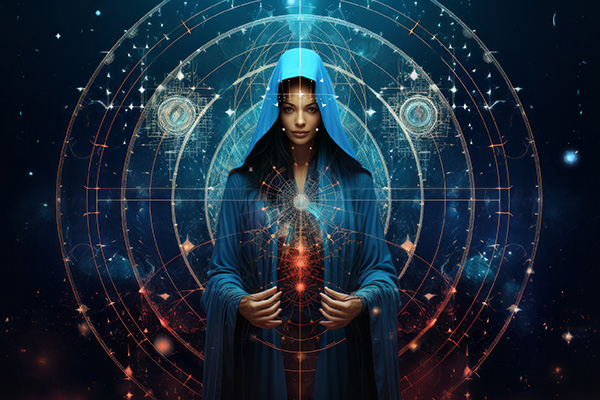boundaries
Love Bombing: When Romance Has Ulterior Motives
 A client recently called me for a reading about a handsome, incredibly charming man she had met online. She was positively glowing as she described him. He works on an oil rig, she said, with a highly lucrative income and promising career advancement.
A client recently called me for a reading about a handsome, incredibly charming man she had met online. She was positively glowing as she described him. He works on an oil rig, she said, with a highly lucrative income and promising career advancement.
But what really lit her up was his love for her.
“He’s crazy about me!” she beamed.
She explained that they have long, dreamy conversations every day about the life they planned to build together. He told her she was everything he had been searching for, and promised her a future filled with abundance and romance once they finally meet in person.
In the meantime, he sends her cards and flowers, floods her inbox with love notes, and makes her feel worshipped and adored.
But the moment I started the reading, the message that came through was crystal clear: betrayal, deceit, dishonesty. Tactfully, I shared what I was seeing. I told her, with as much care as I could, that I didn’t believe this man was who he claimed to be, and that his intentions were not pure.
She paused for a moment. “What do you mean? He even asked me to keep $100,000 in my bank account for him! That proves he trusts me.”
That’s when spirit pressed me to ask the crucial question: What about the other money? She hesitated. “Oh… that…yeah. There was a $13,000 transfer fee I had to pay on my end.”
Tarot Forecast December 2025: Queen Of Swords
 As we near the end of the year, the Queen of Swords comes up as our guiding archetype for this final month of 2025. Her energy is one of discernment, honesty, and mental clarity. She is a powerful presence that calls us to rise above emotional noise and align with truth.
As we near the end of the year, the Queen of Swords comes up as our guiding archetype for this final month of 2025. Her energy is one of discernment, honesty, and mental clarity. She is a powerful presence that calls us to rise above emotional noise and align with truth.
Where other cards might emphasize emotional depth or spiritual surrender, the Queen of Swords reminds us of the sacred wisdom of logic, perception, and clear boundaries. She is the elder counsel of the Tarot court, known for her keen intellect and ability to cut through illusion with precision and grace.
This month, her influence brings an invitation to end the year with conscious reflection and empowered decision-making. December’s energy is not about rushing into resolutions or emotional reactions, but about taking a pause to consider where we’ve been, what we value, and where we wish to go.
The Queen of Swords challenges us to lead with truth, not just in our communication with others, but in the narratives we hold within ourselves. She speaks to the power of thoughtful boundaries, the necessity of honest dialogue, and the liberation that comes when we finally let go of what no longer serves our growth.
Under her watchful eye, we may find ourselves more reflective, more intentional, and more willing to let clarity guide us. Whether it’s setting boundaries, speaking our truth, making a strategic decision, or decluttering our mental and emotional landscape, this month asks us to do so with integrity and intelligence. The Queen of Swords helps us end the year not in chaos, but in clarity. Continue reading
How To Deal With Energy Vampires And Psychic Bullies
 Someone or something draining your energy? Most of the time it’s someone whom you are either trying to please, or get approval from, or someone you’re trying to help. You may begin to notice that something changes in your energy field each time you are around this person, or that you feel an imbalance of some sort afterwards. When I say being around a person, this can mean exposure to them through meeting in person, texting, talking over the phone, and even energetically, or psychically.
Someone or something draining your energy? Most of the time it’s someone whom you are either trying to please, or get approval from, or someone you’re trying to help. You may begin to notice that something changes in your energy field each time you are around this person, or that you feel an imbalance of some sort afterwards. When I say being around a person, this can mean exposure to them through meeting in person, texting, talking over the phone, and even energetically, or psychically.
Energy bullies and psychic vampires are very good sucking the life force right out of you. Unfortunately, you may not notice this is happening, until after the fact. However, once you realize what has happened, identifying it is the first step to proactive healing, regeneration, and protection from allowing it to happen again.
Let’s have a closer look at what is actually taking place during an energy drain. Suppose you have a friend who is always complaining about her life, or often has a negative outlook on every situation she is involved in. This could also be a family member you meet for coffee, or whom you chat with over the phone regularly. And dealing with this person leaves you always energetically drained, deflated or emotionally unsettled.
I’d like to preface this with the fact that we all have times where we need to vent, or reach out for help when we are struggling with something. On the other hand, we also have moments where we need to be the voice of reason for someone else, or have an open mind and heart to listen and truly be there for the people we love and care about. Listening is so important in relationships, but if only one person is talking and one person is listening, over and over again, it is a drain on the listener.
Learning To Say Yes To Yourself
 It is in the empath’s nature to say ‘yes’ to just about anything requested of them. It goes against our grain. For some of us, saying ‘no’ also brings on fears of rejection, abandonment or letting someone down when it may be important to support them.
It is in the empath’s nature to say ‘yes’ to just about anything requested of them. It goes against our grain. For some of us, saying ‘no’ also brings on fears of rejection, abandonment or letting someone down when it may be important to support them.
Rather than finding an excuse, or simply telling the truth, many of us give in and just go along. It just feels easier in the moment, and even validating or satisfying.
But when you end that phone call, or respond to another text, and you feel anxious and panicked, while you start going over all the other things that will have to fall to the wayside by saying yes, then you really are saying no to yourself.
Self-care requires that we sometimes say no to others, in order to say yes to our own well-being and peace of mind. Consequently, the person that you said yes to won’t be getting the best of you. If you have said yes at your own expense, then what you bring to the table for that person is stress and anxiety. Your best self will not be fully present.
Saying yes, when you really want to say no, can also lead to resentment that you then attach to the person who asked for your assistance.
Here the responsibility lies with ourselves. We teach people how to treat us and many times we don’t give others enough credit for understanding when we say no. Most people would rather hear. “No thanks, that time doesn’t work for me” or “I have other commitments,” instead of having to sense a half-hearted or less than enthusiastic yes.
Be Your Own Light In Times Of Darkness
 We’ve been facing dark days and challenging times across the world in recent years, no matter where we live. But the future is much brighter than it may seem, and that light of hope begins with you.
We’ve been facing dark days and challenging times across the world in recent years, no matter where we live. But the future is much brighter than it may seem, and that light of hope begins with you.
With social media and constant news feed updates, mostly centered around negativity, disaster, conflict, or tragedy, many of us feel overwhelmed these days. These are especially not easy times for the spiritually conscious person and the highly sensitive.
Our generation is being bombarded with a stream of distressing information and content, much of which includes falsehoods and fearmongering. Children today are exposed to more in grade school than some of us were after we graduated and entered the workforce. That’s not always a good thing, but it also means they’re growing up faster, and with the right guidance, they can grow up wiser.
When people talk about “the good old days,” they’re usually thinking about how much simpler life seemed in the past. I remember my grandparents saying such things long before there was the internet, smartphones, or AI. So, I guess every generation has its own reasons for nostalgia, and this sentiment is nothing new in the digital age.
That said, some of us today still grew up without television or even radio, and lived through the full evolution of the current digital age. Many elders still feel disconnected from how rapidly things have changed. But there’s beauty in that too. Each generation carries wisdom, and now, more than ever, we need to blend that wisdom with the tools of today to create a better path forward for all of us.
What Makes A Spiritual Group Truly Work
 We are all different. Each person is a piece of the puzzle that creates a group. All people are raised different. People may have different spiritual beliefs, different educational backgrounds, jobs, nationalities.
We are all different. Each person is a piece of the puzzle that creates a group. All people are raised different. People may have different spiritual beliefs, different educational backgrounds, jobs, nationalities.
Yet, if the common goal is the same, there is no reason why we cannot achieve much more in our world. Some of us simply need to find a way to respect diversity.
Spiritual groups tend to be the especially challenging when it comes to diversity. Too often spiritually-minded people are expected to always agree with everyone about everything, in order to promote goodwill among group members and keep the peace.
But in any group people have to learn how to agree to disagree. It’s always okay to have your own opinion and express how you feel. One must just remember that not all of the group may agree with your thoughts.
In groups people all choose different roles, and the roles may change over time. Most groups have that one person that assumes the role of leader. The leader of the group is often selected by the majority. The leadership role usually fits the personality and consciousness of that individual, as do the other roles in the group.
The leader is usually a person that is able to communicate well with team members and good at listening to people. The ‘worker bees’ are usually good at taking direction and accomplishing the task at hand. Somewhere in the middle are the people that come up with ideas and can present them to the group, and help the suggestions come to fruition.
Tarot Forecast September 2025: Queen Of Cups
 This month we are inspired by the serene and soulful energy of the Queen of Cups. Her appearance as the card of the month sets the tone for a period of emotional clarity, compassionate connection, and deepened intuition. This is not a time to push, rush, or force. Instead, it is a sacred pause that invites us inward.
This month we are inspired by the serene and soulful energy of the Queen of Cups. Her appearance as the card of the month sets the tone for a period of emotional clarity, compassionate connection, and deepened intuition. This is not a time to push, rush, or force. Instead, it is a sacred pause that invites us inward.
The Queen of Cups embodies the wisdom of the heart. She understands that true strength lies not in control, but in compassion. Her energy helps us soften where we have built walls, offering emotional nourishment both to ourselves and those around us.
This month, we are encouraged to listen deeply, not just to others, but to the whispers of our own soul. The next four weeks is about emotional intelligence, healing, and inner alignment. We are reminded that empathy is a superpower, and that our intuition is one of our greatest guides.
Traditionally the Queen of Cups is depicted sitting on a throne by the sea, symbolizing her deep emotional sensitivity and intuitive depth. The waters around her represent the subconscious mind and the realm of emotions. Her throne is adorned with images of sea creatures, signifying her connection to the watery, emotional realm and her comfort with navigating its depths.
In her hands, she holds a lidded, ornate cup, unlike any other in the Tarot. This closed cup suggests mystery, emotional containment, and sacred inner knowledge. It also symbolizes her ability to hold space, to keep confidences, and to honor emotional boundaries. She gazes intently at the cup, not distracted by the waves behind her, illustrating her capacity for focused emotional awareness and inner reflection. The Queen of Cups teaches us that strength can be serene, and that emotional attunement can lead to profound spiritual insight.